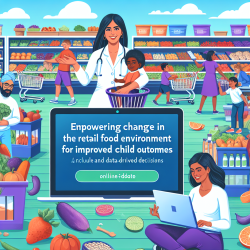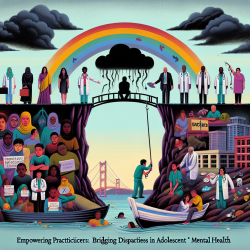Introduction
The landscape of public health education in India is undergoing significant transformation. As highlighted in the research article, "Landscape Analysis of Public Health Jobs in India to Develop an Evidence-Based Public Health Curriculum," there is a pressing need to align educational programs with the evolving demands of the public health job market. This blog post delves into the findings of the study and explores how practitioners can leverage these insights to enhance their skills and contribute effectively to public health initiatives.
Understanding the Current Job Market
The study conducted a comprehensive analysis of public health job postings across various Indian job portals. A total of 382 unique job postings were analyzed, revealing key trends in job titles, required skills, and educational qualifications. The most common job titles included manager, officer/lead, analyst, and consultant, with a significant portion of these roles based in Delhi.
Interestingly, more than half of the job postings emphasized the importance of data analysis and statistical skills, underscoring the growing relevance of data-driven decision-making in public health. Additionally, communication skills were highlighted in approximately 15% of the postings, indicating the need for professionals who can effectively convey complex information to diverse audiences.
Implications for Public Health Education
The findings of this study have significant implications for public health education in India. To prepare students for the demands of the job market, educational institutions must prioritize the development of data analysis and communication skills within their curricula. This involves not only incorporating relevant coursework but also providing practical opportunities for students to apply these skills in real-world settings.
- Data Analysis Skills: Programs should integrate training in statistical software such as SAS, SQL, Python, and R, as these were frequently mentioned in job postings.
- Communication Skills: Courses should emphasize the development of both written and oral communication skills, enabling graduates to effectively engage with stakeholders and convey public health messages.
- Interdisciplinary Collaboration: Encouraging collaboration across disciplines can enhance the ability of public health professionals to address complex health challenges.
Encouraging Further Research and Development
While the study provides valuable insights into the current state of public health jobs in India, it also highlights the need for ongoing research and development in this field. Practitioners and educators are encouraged to conduct further studies to identify emerging trends and skill requirements, ensuring that public health education remains relevant and responsive to the needs of the workforce.
Moreover, collaborations between academic institutions and industry stakeholders can facilitate the continuous updating of curricula, ensuring that graduates are equipped with the competencies necessary to thrive in a dynamic job market.
Conclusion
In conclusion, the "Landscape Analysis of Public Health Jobs in India" study provides a valuable framework for enhancing public health education. By aligning educational programs with the demands of the job market, we can cultivate a skilled and competent workforce capable of addressing the 21st-century public health challenges. Practitioners and educators are urged to leverage these insights to drive positive change in public health education and practice.
To read the original research paper, please follow this link: Landscape Analysis of Public Health Jobs in India to Develop an Evidence-Based Public Health Curriculum.










